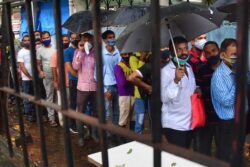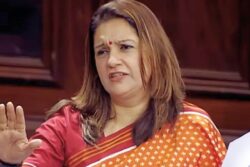Rajiv Gandhi wanted Bofors money to run Congress: Ex-CBI chief

NEW DELHI: Former Prime Minister Rajiv Gandhi wanted commission paid by defence suppliers to be used exclusively for the purpose of meeting expenses of running the Congress, a former CBI director has claimed in his autobiography.
“Such a step would largely prevent the collusive nexus between the middlemen, ministers, bureaucrats and that such a step could enable the government to do away with the quid pro quo relationship with some unscrupulous businessmen and equally unscrupulous politicians and bureaucrats,” writes Dr A P Mukherjee who was the CBI director in 1989-90.
Mukherjee said Gandhi explained his position in a meeting on June 19, 1989, during a meeting between the two at the Prime Minister’s residence. In 1987, Gandhi got embroiled in the Bofors scandal, in which people close to him where accused of taking kickbacks from the Swedish artillery gun manufacturer for an Indian Army contract signed in 1986.
Mukherjee says Gandhi came to know towards the end of 1984 that some “senior officers of the armed forces had been surreptitiously collecting huge amounts of money as ‘commissions’ in respect of most of the defence purchases, quite often in connivance with some ministers, middlemen and civilian officers as well”.
When Gandhi discussed the problem with some of his advisors, “it was suggested by some that all commissions as payable or usually paid to middlemen should be banned but the commissions to be given as a matter of routine practice by the suppliers of major defence materials could be pooled under the care of some non-government entity which could be utilised solely for the purpose of meeting the inescapable expenses of the party.”
Mukherjee said Gandhi was also in favour of “some legislation in line with the practices of some of the Western countries where contributions to party funds by business and industrial houses and individuals were allowed with provisions for their proper accounting, auditing and public discourse”. However, the “wild, motivated and widespread” adverse publicity generated by Bofors scandal obscured the prospect of proceeding further on the matter, Mukherjee says in his book. The book, “Unknown Facets of Rajiv Gandhi, Jyoti Basu, Indrajit Gupta”, hit the book stands in recent days.
While profuse in his praise for Gandhi, Mukherjee says he is now disclosing the contents of the conversation “with this remarkable human being whose trust I was privileged to receive in ample measure”.
Mukherjee also discloses that the young PM told him about the need for substantial amount of money for running a party like the Congress. “The requirement assumes a huge proportion on the eve of assembly and/or parliamentary elections. This leads to massive fund collections by important party functionaries all over the country, which leads to an almost unbreakable unholy quid pro quo nexus between unscrupulous party functionaries, ministers and businessmen. I could sense this as the party’s general secretary or even as its youth leader earlier,” Gandhi reportedly told Mukherjee.
Source: TimesofIndia.com









